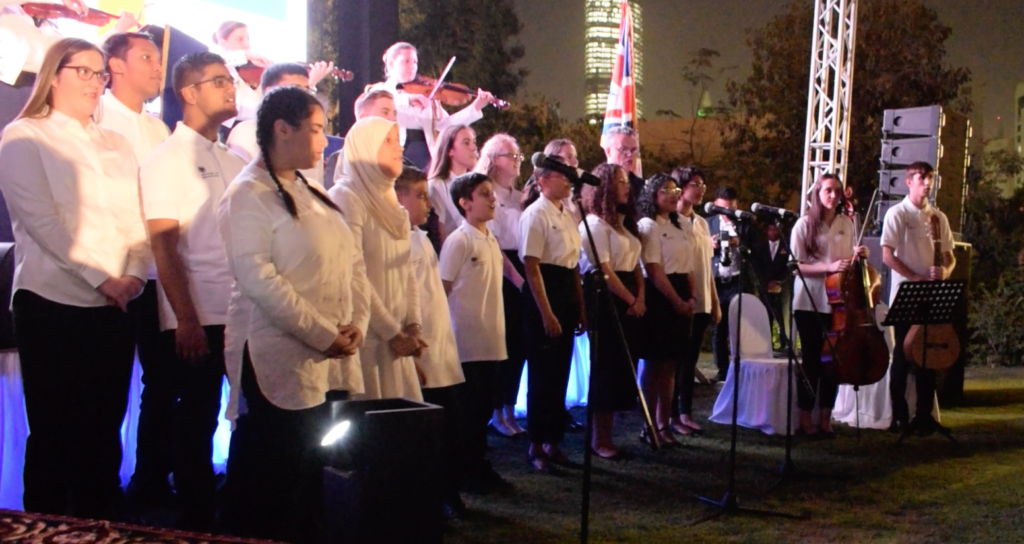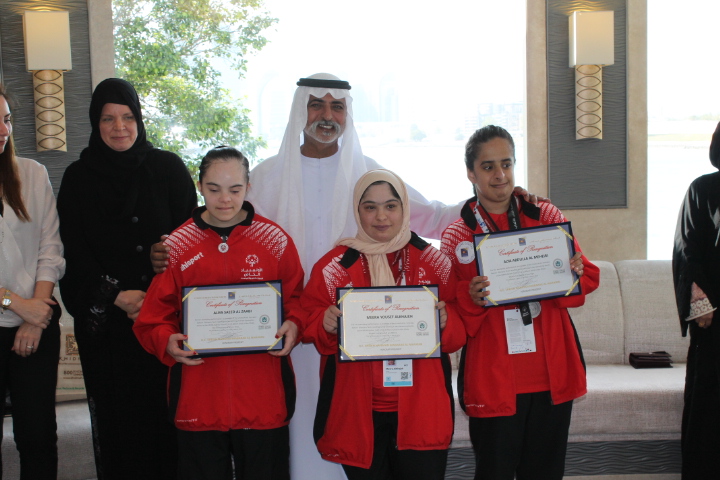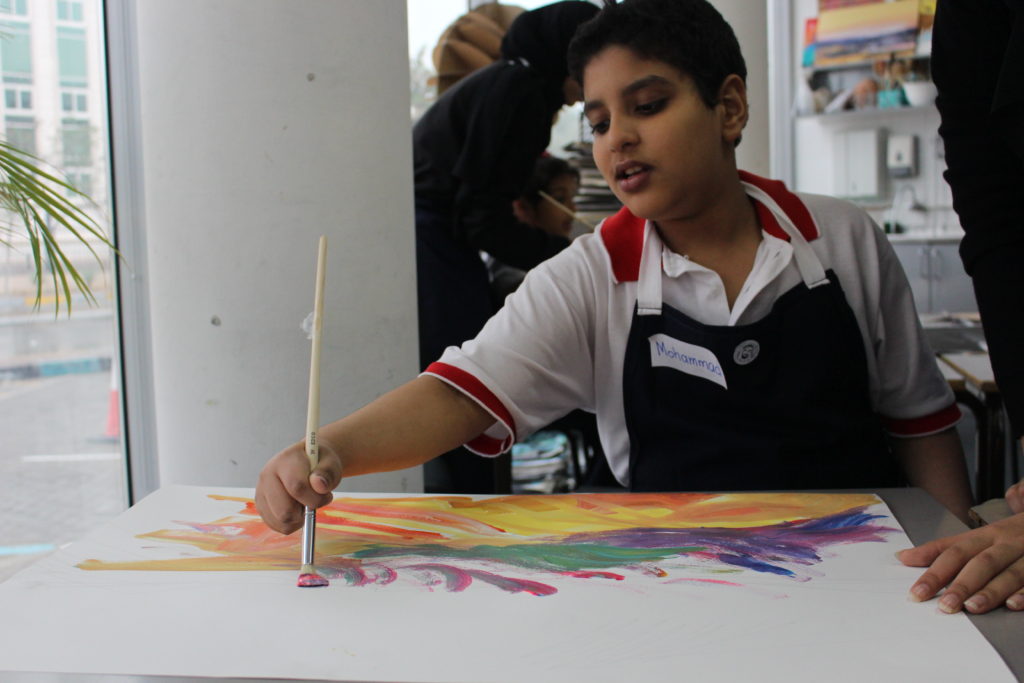At the Future Rehabilitation Centre there are 4 phases of learning (phase 3,4,5 & 6) and each student has individualised and targeted educational goals. In phases 3, 4 & 5 students are following a developmental model. The curriculum is devised from a broad range of methods that are considered to be current best practice and are implemented to target the following functional skills:
- Classroom skills and behaviour
- Attention & Listening Skills
- Play Skills
- Receptive Skills (understanding)
- Expressive Skills (AAC & talking)
- Early Writing and Reading
- Number Skills
- Social & Emotional Skills
- Self help & Independence
- Fine Motor/Gross Motor/Visual Motor
Complimentary programs are also introduced through our Enrichment Program:
Book Nook (adapted from Hanen program & other resources)
These sessions are held in either the Library or a designated reading area in the classroom. Focus of these activities are to target emerging literacy skills, develop receptive and expressive language skills and deepen connections with vocabulary.
Sensory Experiences
Students are given opportunities to explore textures, manipulate items, be exposed to scents and visual stimuli. When a child explores the world though their senses, they develop fine motor skills, gross motor skills, language abilities, self-confidence, and so much more. While sensory play definitely is based on the body’s senses, there are also the vestibular and proprioception senses that provide input to a child. Any experience involves the body’s ability to take in sensory input, process it, and provide appropriate responses. During all of this the student is learning.
Information Technology
Students are presented learning materials in a range of mediums, including visual screens, interactive devices and computers. Students learn basic functions of MS applications including simple Word Processing, PowerPoint presentations and email correspondence.
Positive Behaviour Support (PBS)
Across the whole school there is a strong focus on building positive behaviour in students. Positive behaviour support is a behaviour management system used to understand what maintains an individual’s challenging behaviour.
Arts & Crafts

Students are given the opportunity to explore art through a variety of mediums. This time also allows for communication and social skills to be targeted in an alternative supported setting. Students design and create 2D and 3D pieces using; paint, chalk, clay, mosaic, weaving, fabric, thread and recycled materials. Students also work on the design and construction of whole school community art projects for display in the centre as well as enter community competitions when available.
Department of Education and Knowledge
Some classes, especially our Arabic classes, follow sets of book and materials from the Ministry of Education in Arabic, Mathematics and Science.
Music
An interactive music program is also provided to all classes. Students are immersed in sound and movement sessions to introduce students to instrumental and singing programs. This helps students to develop kinaesthetic awareness, receptive language and social skills. Selected students are invited to join the school choir and may have the opportunity to perform in both internal and external school performances.

Our School Choir with the choir from British School singing at the British Embassy in April 2018
Physical Education
Physical education, is not just a component of our curriculum but a healthy living skill that we would like all our students to develop. Students are provided with inside and outside spaces to develop movement and coordination skills. Sessions vary depending on the individual needs of students and include activities such as; team games (football, basketball), gentle stretching and Yoga/Pilates based activities and skills training for developing hand eye coordination.

Our three UAE Special Olympics Female Swimming Team bagging medals in the 2018 MENA Games
Each year we celebrate UAE National Sports Day! Classes are divided into two teams to allow for friendly competition and activities are devised for all levels and abilities.
The Future Centre has an indoor, temperature controlled swimming pool. Selected students have swimming or water activity in their program to help provide opportunities to learn about water awareness, supported movement exercises, early swimming skills and an opportunity to develop social and play skills in a varied environment.
Educational Excursions / Field Trips
Selected classes are provided with the opportunity to extend their learning into the community via a range of community activities. These opportunities allow students to learn and practice behaviour strategies within public spaces, as well as develop social skills in an alternative supported environment. These include; horse riding which also help students develop and interest in animals and coordination skills to ride on a horse, shopping centre based activities for independence skill and other opportunities that are presented throughout the academic year.
Grand Musicale
Around every 2 years selected students also have the opportunity to work with specialised theatre production staff and create a school musical. The theme tells a story created from our students and is brought to life on stage with costumes, choreography, dance routines and song. Such a grand production also allows for some of our older students to develop a portfolio for ASDAN Towards Independence: Performing Arts.
ASDAN – New Horizons
Selected students in phase 5 may also introduced to the ASDAN preparing for adulthood – New Horizons programme. This program allows for the student to create a portfolio of evidence to show their understanding of Personal, Social, Health, Citizenship and Relationships.
Learn more about ASDAN click here
Pre Vocational Skills
Students in phase 3-5 are also encouraged to learn through real world experiences. These tasks include a range of functional activities, such as;
- Sorting and classifying targets a student’s attention to detail and early problem solving skills.
- Home help skills such as folding various materials, pegging and using simple tools help to develop fine motor skills.
- Clock and time telling skills, help to develop a sense of time management
- Functional Reading such as sign posts, symbols, shopping lists and menu’s help students to navigate themselves in the community.
- Money awareness is strongly linked to a student’s math skills. Through simulated experiences, students purchase items in stores and exchange play money.
- Office assistant skills: students are provided with both simulated and real opportunities to develop skills such as; filing, laminating, delivering messages and photocopying.

Vocational Skills
When students reach phase 6 student learning takes a more practical focus. Students all follow various ASDAN preparing for adulthood programmes as they begin to prepare for Everyday Living. The ASDAN – Transition Challenge programme allows for 18 areas of general curriculum skills to be targeted through engaging real-world experiences.
Cookery
Cookery sessions are adapted for the level and ability of the students. Some classes are able to follow the steps in a recipe to create their own snacks, lunch/dinner and desserts. Whilst other classes are exploring the smell, texture and taste of new foods to help a fussy eater, expand their diet.
Social and Emotional Wellbeing Framework (adapted from Friends for Life and other resources)
Targeted opportunities are created for students to explore and understand feelings in themselves and others in a supported environment. By increasing self-awareness, students are better able to manage their own emotions and can begin to help others. As students recognise body clues, they learn strategies to help themselves relax and work towards regulating their own emotions. Opportunities to build communication and social skills are also integral to the development of all students.



